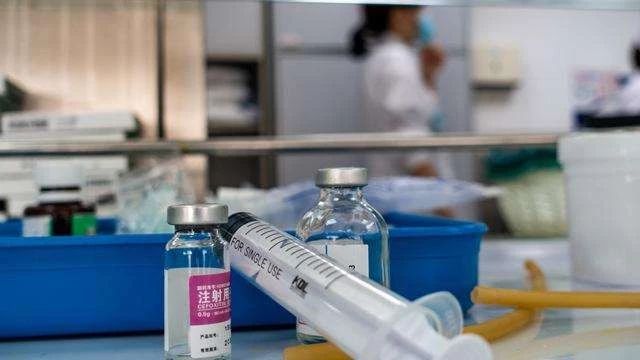— What is the impact of the Wuhan epidemic on the economy? (this is the most authoritative analysis we can find.) —
display
— Details description —
display

As of 24:00 on January 28, the National Health Commission has received a total of 5974 confirmed cases, 1239 serious cases, 132 deaths and 103 discharged cases. There are 9239 suspected cases.
On the same day, 1459 newly confirmed cases were reported in 31 provinces (districts and cities), significantly less than 1771 cases on the 27th.
Up to now, according to incomplete statistics, state-owned enterprises and private enterprises have donated more than several billion yuan of cash or materials.
However, what will China's economy face behind the continued epidemic, extended holidays and donations from private enterprises?
The impact of SARS on economy
The impact of SARS on the economy in that year was mainly concentrated in the second quarter of the high tide period. In the whole year, the impact was far less than expected.
In 2003, China's economic structure is as follows: the contribution rate of the first industry is 3.1%; the contribution rate of the second industry is 57.9%; the contribution rate of the third industry is 39%.
It can be seen that at that time, the second industry contributed the most to economic growth, accounting for 57.9%. But the impact of SARS on the secondary industry is relatively small, which is mainly due to the fact that the outbreak of SARS failed to be fully prevented and controlled in the first time, and it was not until March that it was fully valued. At that time, the Spring Festival was over, and the workers were in place in the factory.
The economic impact of this year's epidemic is likely to be more severe
After 17 years of development, China's economy has not only taken off rapidly, but also the entire industrial structure has changed significantly.
In 2019, China's economic structure is as follows: the contribution rate of the first industry is 3.8%; the contribution rate of the second industry is 36.8%; the contribution rate of the third industry is 59.4%.
The devastating impact of this epidemic on the tertiary industry will be directly reflected in GDP.
In addition, compared with that year's "SARS", the time of this outbreak of pneumonia is also more unfortunate, because it happens around the Spring Festival, which will bring double blow to our economy.
Spring Festival has always been the peak of consumption. This time, the whole country's people are isolated at home, and most of the consumption activities are basically stopped, which will bring a major blow to China's service industry. Moreover, the service industry has always been the largest sector of employment, and the suspension of the service industry will also cause heavy losses to employment.
With the extension of the Spring Festival holiday, it is still a question whether local people can return to work in factories and enterprises on schedule.
Zhou Jingtong, a senior economist at the Bank of China Research Institute, said it was expected that the catering, entertainment, tourism and other service industries would continue to be affected in the future. Due to the challenges of coordination and linkage between industrial chains and supply chains among regions, industrial production will also be damaged.
Lu Zhengwei, chief economist of Societe Generale, also said that China's economic downward pressure may increase in the short term, considering that consumption, the first engine of economic growth, has declined due to the epidemic.

How to deal with it?
"The short-term monetary policy has little to do with the epidemic, but if the epidemic continues to affect the economy, the window period for monetary policy to surpass fundamentals may be extended since the beginning of the year," song Xuetao, chief macro officer of Tianfeng Securities Research Institute, said in the research report
Tao Jin, a researcher at Suning Financial Research Institute, believes that the outbreak may become a catalyst for more active fiscal policy and the central bank to cut interest rates. At present, the whole society's confidence in the economic prospect is relatively weak, which needs a wave of stimulus to enhance confidence.
"From the perspective of prediction, the epidemic may become a catalyst for more active fiscal policy and the central bank to cut interest rates. From the perspective of government policy in 2003, the government subsidized the tourism, transportation, catering and other industries that were greatly affected, but did not carry out a large-scale active financial policy. Monetary policy did get a temporary easing, but it soon turned to tightening, because the risk of China's economy at that time was overheating, rather than the current downward trend. At present, the whole society's confidence in economic prospects is relatively weak, and a wave of stimulus is needed to enhance confidence. " Tao Jin said.
Huang Yiping, a professor at the National Development Research Institute of Peking University, said that the central bank should moderately relax monetary policy, including increasing injection liquidity and guiding LPR to move down; providing various policy support for new economic channels and increasing online consumption; providing small and medium-sized enterprises with preferential tax policies to help them tide over difficulties; helping those who have lost their jobs due to the impact of the epidemic, especially the lack of good ones Good social security for migrant workers; targeted increase in the construction of public service facilities, including hospitals, schools and urban transportation.
According to Ma Guangyuan, an economist, there should be a very good plan for the extraordinary period! Macro policy should strengthen counter cyclical adjustment. In addition to monetary policy being more relaxed, we should increase efforts in tax reduction and fee reduction to reduce the burden on enterprises. In some investment projects, we can appropriately advance the cycle to hedge the negative impact of the epidemic on China's economy.
What is the impact on the stock market?
Li Feng, vice president of China Financial Research Institute of Shanghai Jiaotong University and co president of Shanghai GAOJIN Financial Research Institute, believes that from a global perspective, the capital market is more sensitive to the black swan incident. The outbreak of novel coronavirus will bring some negative effects on China's capital market. With the spread and outbreak of the epidemic, the capital market will experience a decline for some time, and there will be a certain degree of overfall. But with the epidemic under control and turning point, the overblown valuation will be gradually repaired.
Yang Delong, chief economist of Qianhai open source, believes that due to the long holiday effect, the official start of trading on February 3 is equivalent to a one-off release of bad news, and the market adjustment will be in place in one step. Many stocks may be the floor price when the limit is opened. In the medium and long term, the epidemic will not change the market of slow cattle and long cattle. However, the market correction is large, which is exactly the time to absorb high-quality stocks at a low price. We should adhere to the concept of value investment.
In general, the outbreak may continue to affect short-term sentiment and pace, but it will not change the medium-term market's direction for the better, the CICC strategy team said. At present, the valuations of a shares and Hong Kong shares are more attractive after the correction. CICC still holds a positive view on the medium-term trend of the market, and the correction under the influence of short-term sentiment provides an opportunity to attract low-quality standards.
In terms of investment strategy, CICC believes that short-term investors can pay attention to the progress of the epidemic, see the potential stable time point of the follow-up epidemic according to the situation, and participate in the short-term rebound of the sectors heavily affected by the epidemic. Among them, consumption upgrading and industrial upgrading are the main trends that are optimistic in the medium term.
JPMorgan strategists studied the stock market's response to past outbreaks, including SARS in 2003 and swine flu in 2009. It is worth noting that the above events did not lead to a sustained decline in the stock market, and brought buying opportunities in "a few weeks". In the three months after the global panic reached its peak, the index rose by an average of 23%.


